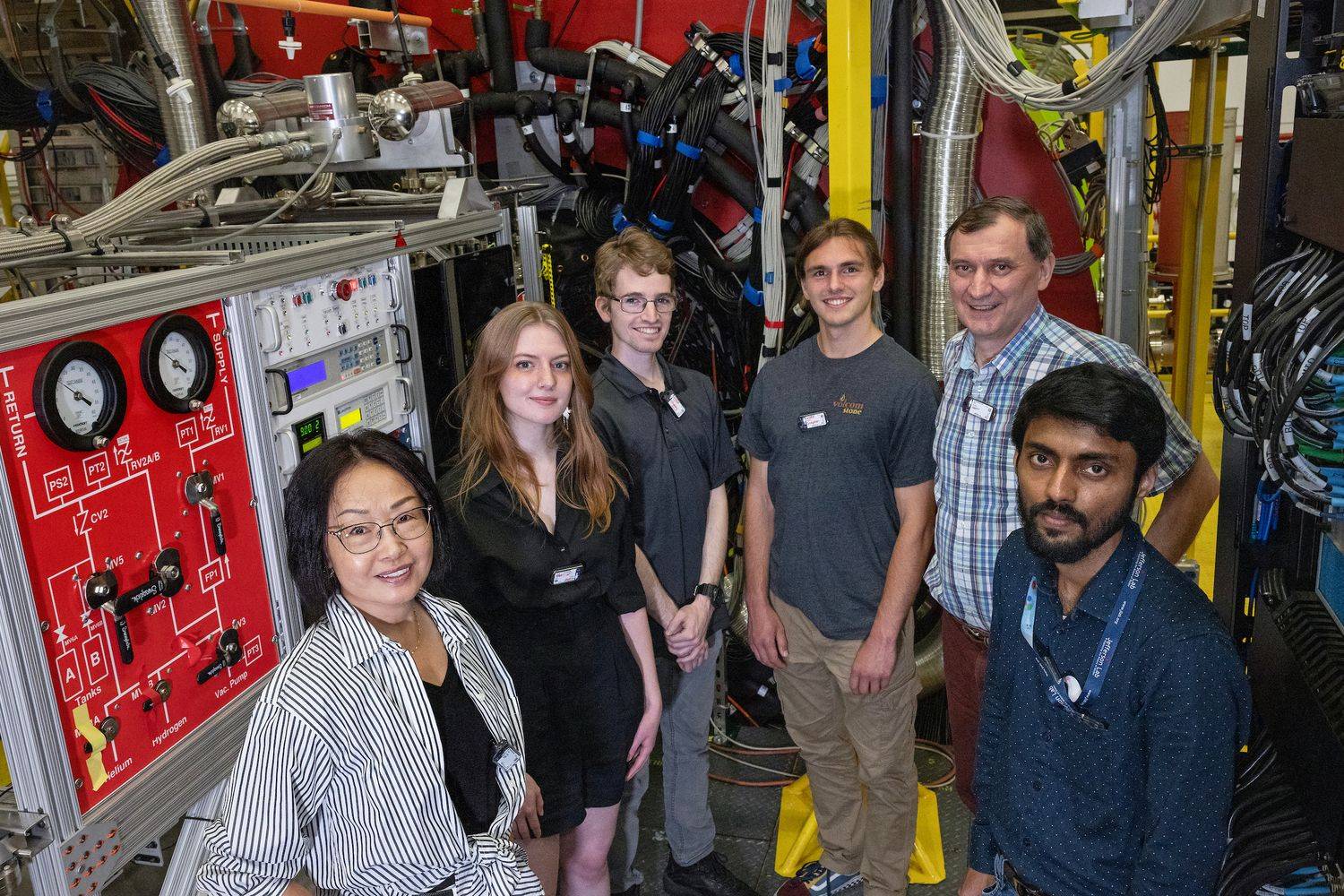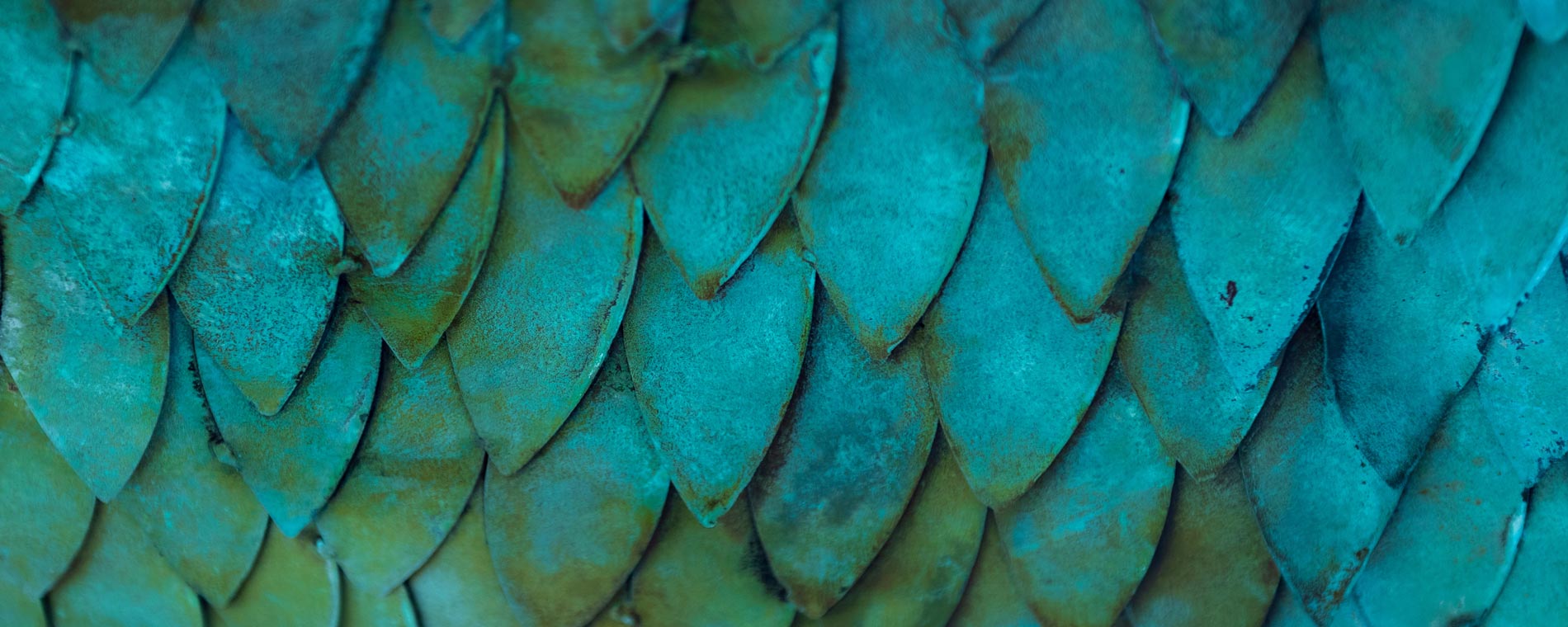Unusual Opportunity at Jefferson Lab

Courtesy: Aileen Devlin/Jefferson Lab
UNCW undergraduates have a rare opportunity to be directly involved in cutting-edge nuclear physics research at a national laboratory. The university’s Medium Energy Physics group has been including students in this work for more than two decades.
Professor of Physics Liping Gan has been involving UNCW students in an international collaboration at Jefferson Lab in Newport News, Virginia, since soon after she was hired at the university in 2001. Scientists come from around the world to use the lab’s facilities, including an electron accelerator. Each year at least two or three students join Gan at the lab over the summer where she is working with the JLab Eta Factory (JEF) experiment.
“Learning physics in a classroom is completely different from when you engage in research,” Gan said. “You are doing the job of a physicist and also learning at the same time.”
Students selected for the competitive opportunity work with multimillion-dollar equipment. The most recent is an upgraded calorimeter with lead tungsten crystal, Gan said. After developing, building and successfully testing a prototype of the more sensitive detector, installation of a large-scale version started in March. In June, students were charged with calibrating its thousands of modules and preparing the equipment for more experiments.
“Over 20 years, we have already had more than 50 students, and many of those students get excited to continue their studies in graduate school,” Gan said. Several have gone on to earn doctoral degrees and become professors themselves.
Past students analyzed data from lab experiments and contributed to research publications. A publication in the journal Science announced the most precise measurement in the world of the ultra-short lifetime of pions, the simplest particles built out of the same ingredients as protons and neutrons. Another in the journal Nature announced a more sensitive proton charge radius measurement with electron scattering.
“One of the fundamental questions for our field is where matter comes from and how it has evolved,” Gan once told the Jefferson Lab. Findings like these provide a window into some of the most important questions about how the universe is constructed and how people can better understand it.
Students not only participate in ongoing research but also act as ambassadors for the program, speaking about their work after returning to UNCW and serving as resources for other students interested in becoming a part of it. They present their work at professional conferences, building a full picture of what a role in the field would be.
This article has the following tags: Research & Innovation


